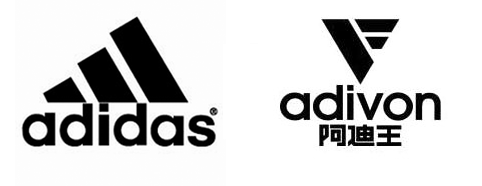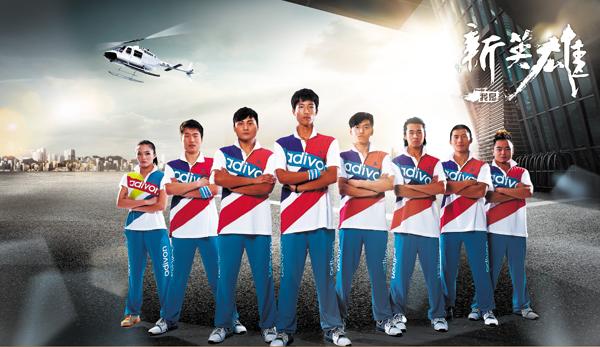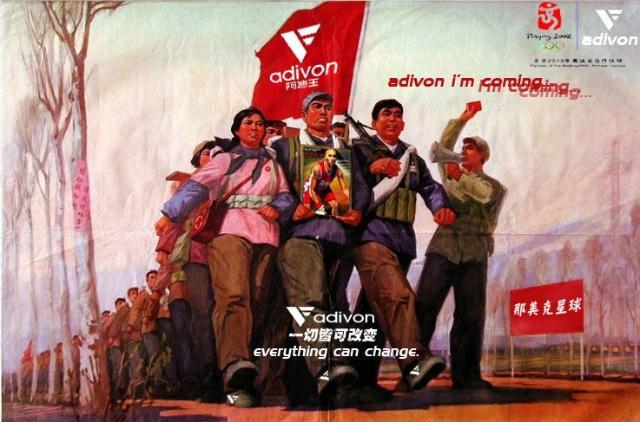

When it comes to trademark, it is a continuing battle in China. In May 2013, the 5-year trademark dispute between sportswear giant Adidas and local brand Adivon has finally come to an end with a settlement. Adivon, the arguable copycat of Adidas, is to transfer its triangle logo and Chinese name 阿迪王 [ā dí wáng] to Adidas (阿迪达斯 [ā dí dá sī]) and to stop using them in any brand touch points. Adidas will then drop the compensation request.

Adivon was originally founded in 2006 in China’s Fujian province, where many counterfeit brands were born. As a low-end sportswear brand, Adivon began by trying to imitate Adidas in many ways. The brand’s Chinese and English names, Adivon and 阿迪王 [ā dí wáng], are both similar to Adidas / 阿迪达斯 [ā dí dá sī]; moreover, Adivon’s logo is said to be a rearranged Adidas logo, with the arrow pointing down.

Despite the brand’s origin, Adivon started to gain momentum in China. Being a popular sportswear brand rooted in T3/4 cities of China, Adivon has opened around 2000 outlets and gained more market share. Adivon chose not to enter big cities but rather aimed towards young consumers in lower tier cities who perceive sportswear products as necessities instead of fashion or high-end goods. Adivon’s low pricing suited the financial condition of youngsters in these cities. By launching cheaper sportswear products with good designs, Adivon has further stimulated consumer needs and gradually achieved higher exposure and brand relevance in these markets. Moreover, Adivon gradually began to differentiates itself from other “counterfeits” by instilling a grass-root-culture (草根文化) – popular culture that roots from everyday people. For example, Adivon’s tagline “Everything Can Change” (一切皆可改变) and a declaration of “I am the New Hero” (我是新英雄) speak to these everyday people who has a determination to achieve a better life. In this way, Adivon has proved that it is not merely a counterfeit but a brand that can well represents the lower-middle-class consumers.

However, Adivon is unlikely to become a solid and trustworthy brand in China with high brand relevance in a limited market alone. Apparently, Adivon is now dealing with the consequence of not having a solid brand foundation. Building trust and understanding of the brand could be a long journey for Adivon as it hasn’t been treated seriously by most of the Chinese consumers to begin with. Adivon’s recent news regarding passing the triangle logo and the Chinese name “阿迪王” to Adidas is considered by many a turning point for Adivon to redefine and further develop its brand equity. With Adivon’s revolutionary spirit, we look forward to seeing Adivon make its tagline real – Everything Can Change.
A Labbrand Group Company © 2005-2025 Labbrand All rights reserved
沪ICP备17001253号-3To improve your experience, we use cookies to provide social media features, offer you content that targets your particular interests, and analyse the performance of our advertising campaigns. By clicking on “Accept” you consent to all cookies. You also have the option to click “Reject” to limit the use of certain types of cookies. Please be aware that rejecting cookies may affect your website browsing experience and limit the use of some personalised features.